If you didn't manage to catch parts 1 & 2 you can do so HERE and HERE
Do you find that there are a great deal of old classics that unfortunately never see the light of day nowadays particularly in terms of dubstep music? It’s slightly different with grime as the majority of the main djs in the scene still include a fair few of the old bangers in their sets along with the new stuff. Why do you think this is so in terms of dubstep?
Well, there are quite a few old dubstep tunes that didn’t come out but to be honest most of the strongest ones did. I’ve personally been responsible for the original of El-B’s “Buck & Bury” and Benga’s “Star Wars VIP” coming out, on top of the two Skream dubs. In reality each of the a-list dubstep producers has a few dubs that people are upset never hit vinyl but you gotta understand that back in those times no one wanted to know about dubstep. They really didn’t, for about 5 years. Only 300 copies of “Sholay” were pressed and even that struggled and I think that’s one of if not the best dubstep tunes ever. Sometimes tracks were unwanted remixes that remain in legal limbo. I helped Skream get the Almighty Father remixes, and they were “lost” for ages until he altruistically leaked them.
So if something didn’t get immediately released it got sat on and then you have the issues around how producers feel about their own work, especially as they evolve and get better at engineering.
We live in times of instant gratification now, where any track from the world’s music collection is accessible on YouTube via your iPhone anytime, anywhere. That’s wonderful but it can generate an impatient “gimme gimme gimme…” culture. Yet sometimes the inaccessibility of certain dubs makes them special – I’ve certainly resisted asking for certain amazing dubs for this reason, as contrary as it sound s – so you can only hear them played by a certain person, in a certain way, in a certain place at a certain time. That can make them all the more special.

As a sort of Michael Parkinson or Jonathan Ross of the underground music scene you have interviewed a huge amount of DJ’s, producers and MC’s during your career. Who would you say was the most enjoyable out of them all and why?
Oh my god, you didn’t just compare me to Jonathan “twat mullet gobshite act your age mate” Ross did you? #DASAPAR! ;-)
Pretending you didn’t compare me to Parky either, yeah interviewing is fun. Some of the best ones have been mind blowing, career-changing events for me. My two interviews with Wiley and Dizzee in about 2003 were amazing to be part of, they’re both such heroes of mine (these are archived at Deeptime.org). Dot Rotten was pretty amazing to speak to too.
Dubstep wise I think I’ll always enjoy speaking to Mala and Loefah. They’re just such different people. Loefah’s analytical but brutally honest. Mala’s so emotional, like every word and emotion he conveys comes deep from within. I’ve interviewed them several times each since about 2003 and it’s always been incredible. Finally both Burial interviews were fun, especially the second, longer one, though to be frank he talks like that all the time!

On a finishing note, I’m sure you are asked this regularly but where do you see the UK underground music scene going in say the next 5 – 10 years?
Forecasting the future is a mugs game so I’ll refrain from making any specific predictions. What I would say is that over the last 15 years or so I’ve begun to notice general trends in urban music, ones that occur cyclically. So I’d expect most scenes to grow in small steps at first but be more profoundly changed by big steps (drift v shift). This feeds into the rates of the cycles of how scenes form, grow and then splinter. There’s another cycle between warm vocal sounds that lead into dark instrumentals, which often spills into an over-hard, comically hyper angry that causes a sound to change audience (from urban to student/national), which I’ve seen several times.
So I am willing to predict that these cycles will continue to exist, as I think they have some basis in human nature and the relative proportions of certain demographics within the UK, which aren’t likely to change radically, on a grand scale… I hope (nuclear war might change that, but who the hell would predict or wish for that!?).
I think the next 5-10 years could be very interesting in technology terms. In 2000 the UK was just coming to terms with email and 56k dial up web connections. 5 years before that only drug dealers had mobile phones. Now we have super-fast broadband and anywhere portable broadband on your iPhone. I’d expect connectivity to increase, but I’m willing to speculate that the change between limited connectivity and now is larger than now and the saturation of the near future… but who knows! I raise this because it has one consequence, that the economic value of music tends to zero as the effort to transfer it falls to zero. What will happen when physical music has no value? Something or nothing? If someone finds a way to digitize live performance then bwoy, music will be permanently accessible but with no economic value… now that would be interesting times! Let’s hope the price of baked beans and rent falls with it
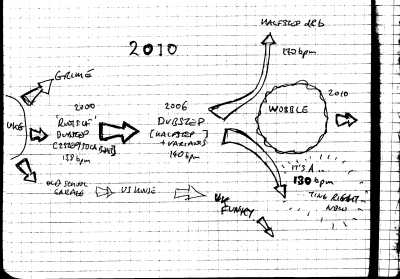
A big shout out goes to Blackdown for kindly agreeing to the interview and to all those who have helped promote it.
Expect some more great interviews to be coming this way over the next few weeks and months!
Photo credit to ASHES57

















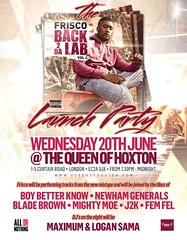

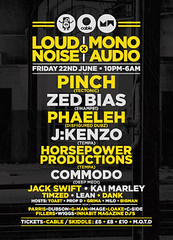
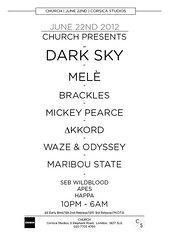
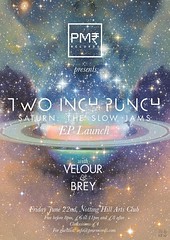
1 comment:
wicked interview. Blackdown is the david attenborough of croydon
Post a Comment